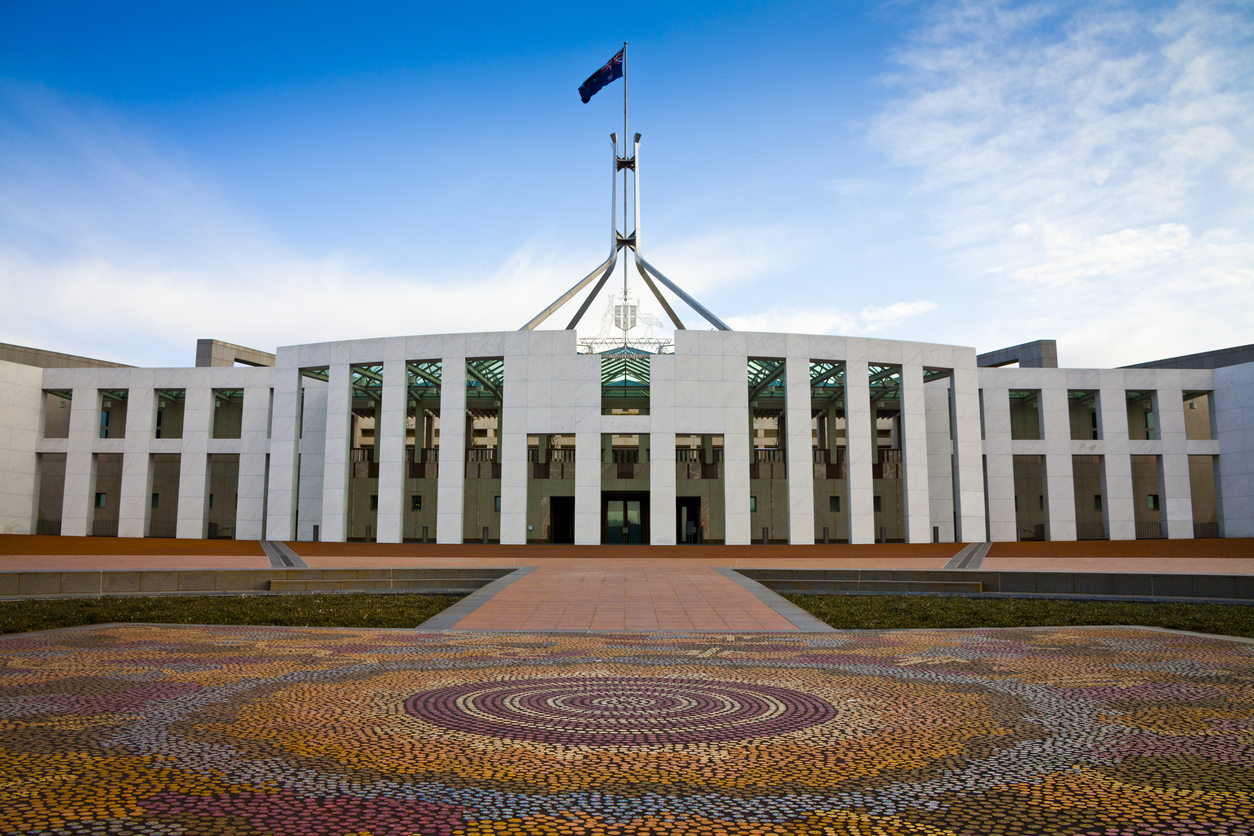Australia's political polling industry faced one of its most significant credibility crises in 2025 when Freshwater Strategy's dramatic miscalculations during the federal election left the Liberal Party stunned and questioning the reliability of modern polling methods. The polling firm, which received approximately $1.5 million from the Liberal Party, continued to predict seat gains for Peter Dutton's team even on election day, whilst publicly available data suggested otherwise.
The disaster has prompted serious questions about polling methodology, transparency, and the influence of internal surveys on campaign strategy across Australia's political landscape. Liberal MPs and party strategists found themselves operating on fundamentally flawed assumptions throughout the campaign, with some describing the internal polling as "way out" and completely divorced from electoral reality.
The fallout extends beyond a single election result, touching on broader issues of accountability in political consulting, the relationship between polling firms and major parties, and whether Australia's political establishment has become too reliant on data that may not accurately reflect voter sentiment. The incident has sparked industry-wide discussions about methodology, transparency standards, and the future of political polling in Australian democracy.
Overview of the Freshwater Strategy Election Disaster
The Liberal Party's reliance on Freshwater Strategy's polling during the 2025 federal election became a significant controversy when the data failed to predict Labor's decisive victory. The Coalition paid approximately $1.5 million for polling that suggested they could gain seats, while Labor ultimately secured 89 seats compared to the Coalition's 40.
Key Events Leading Up to the Election
Freshwater Strategy conducted extensive polling for the Liberal Party throughout the campaign, including tracking polls conducted every second night across 15 key marginal electorates. The polling involved 1200 voters and included both quantitative research and focus group sessions.
Peter Dutton repeatedly suggested during the campaign that internal polling showed the Coalition was competitive. He referenced a potential "2019 situation" where the Liberals could achieve an upset victory similar to Scott Morrison's unexpected triumph.
The final Freshwater Strategy poll published in The Australian Financial Review predicted Labor would form a minority government with approximately 76 seats. This forecast suggested a 1.5-point swing towards Labor with a two-party preferred result of 51.5 per cent Labor to 48.5 per cent Coalition.
Liberal Party director Andrew Hirst expected a seat count in the low 60s for the Coalition based on the polling data. The research never predicted the Coalition would achieve a seat count in the 70s, with the highest projection reaching the high 60s.
Summary of the Electoral Outcome
Labor achieved a decisive victory with 89 seats, significantly exceeding Freshwater Strategy's predictions. The Coalition secured only 40 seats, representing a catastrophic result that fell well short of polling projections.
The actual two-party preferred vote reached 54.8 per cent for Labor and 45.2 per cent for the Coalition. This represented a much larger swing than the 0.6 per cent since 2022 that Freshwater Strategy had predicted.
Peter Dutton lost his own seat of Dickson after 24 years in parliament. The Liberal Party had not conducted polling in Dutton's electorate during the final weeks, assuming the seat was secure.
The Coalition's primary vote collapse was more severe than any polling had indicated. Labor's strategy to characterise Dutton as a risk to essential public services proved highly effective in the final stages of the campaign.
Immediate Political Reactions
Furious Liberal Party members blamed Freshwater Strategy for providing inaccurate data that influenced campaign strategy. Liberal Senator Johnathon Duniam stated the polling was "way off the mark" and "totally out of line with all published polling."
The Liberal Party prepared to terminate Freshwater Strategy's contract when it expires in June 2025. Angry donors indicated they would close their chequebooks following the campaign's failure.
Dr Michael Turner from Freshwater Strategy attributed the polling failure to three factors: overestimating Labor defectors to the Coalition, incorrect preference flow predictions, and a late swing that was difficult to detect. A post-mortem led by an experienced Liberal Party figure like Brian Loughnane was planned to analyse the campaign's failures.
The fallout extended beyond immediate political circles as industry observers began scrutinising Freshwater's practices. The firm's reputation suffered significant damage as details of the polling failure emerged.
Freshwater Strategy: Company Background and Methodology
Freshwater Strategy emerged as a significant player in Australian political polling through its emphasis on empirical analysis and cross-sector applications. The firm's methodology centres on transforming uncertainty into strategic opportunities through evidence-based approaches.
Origins and Development
Freshwater Strategy was established under the direction of Dr Michael Turner, a former pollster with CT Group.
Freshwater developed partnerships with multiple media organisations to establish its market presence. The company secured recurring polling contracts with international publications including the London-based City AM and maintained domestic partnerships with The Australian Financial Review.
Approach to Data Analysis
Freshwater Strategy built its reputation on what it termed an "evidence-led" methodology for complex scenarios. The company emphasised empirical analysis over traditional polling approaches, claiming to transform raw data into strategic insights.
The firm's analytical framework focused on three core areas: performance improvement, perception management, and profitability enhancement. This approach aimed to provide clients with competitive advantages in shifting political and business environments.
Freshwater's data analysis methodology involved identifying opportunities within uncertain environments. The company promoted its ability to shape opinion and manage risk through comprehensive data interpretation rather than simple vote counting.
Polling Techniques and Tools
Freshwater Strategy employed polling techniques designed for both political campaigns and corporate clients. The firm conducted regular tracking polls for media partners, providing ongoing sentiment analysis rather than snapshot surveys.
The company's polling operations for the Liberal Party involved comprehensive voter sentiment tracking. Freshwater provided the party with approximately $1.5 million worth of polling services during the 2025 federal election campaign.
Freshwater's final pre-election poll showed Labor leading 51.5% to 48.5% on a two-party preferred basis. The firm's polling data reportedly indicated potential seat gains for the Coalition right up to election day, demonstrating the techniques' focus on marginal seat analysis.
Polling Failures and Miscalculations
Freshwater Strategy's polling contained fundamental errors that misread the electoral landscape. The firm overestimated Coalition support whilst failing to capture Labor's genuine strength, particularly in the campaign's final days.
Incorrect Primary Vote Predictions
Freshwater Strategy's primary vote calculations proved significantly off the mark. The polling firm predicted Labor would achieve approximately 51 per cent on a two-party preferred basis. The actual result showed Labor securing 54.8 per cent to the Coalition's 45.2 per cent.
This represented a substantial miscalculation of nearly four percentage points. Such margins translate to dozens of seats in electoral terms.
The polling methodology appears to have oversampled Coalition-leaning voters. Freshwater's focus group research, conducted multiple times weekly with approximately 10 participants per session, may have reinforced these inaccurate assumptions.
Dr Mike Turner acknowledged the firm "underestimated Labor's final TPP" despite tracking the general trend. The primary vote collapse for the Coalition exceeded what preference flows could compensate for.
Underestimation of Labor's Strength
The polling consistently failed to detect Labor's growing momentum throughout the campaign. Freshwater's tracking polls suggested the Liberals could achieve seat counts in the high 60s at their peak performance.
Reality delivered a vastly different outcome. Labor secured 89 seats whilst the Liberals managed only 40 seats with 80 per cent of votes counted.
Liberal strategists revealed the polling showed them "going backwards" was unlikely. This false confidence led to resource misallocation, with the party focusing on winning new seats rather than defending vulnerable positions.
The firm's methodology struggled with younger demographics. Generation Z and millennial voters proved "notoriously difficult to poll" as they frequently ignore unknown mobile phone numbers.
Mistakes in Preference Flow Analysis
Freshwater Strategy significantly miscalculated how preference flows would benefit the Coalition. The firm anticipated substantial gains from voters who supported the No campaign during the Voice referendum.
These predicted preference advantages failed to materialise on election night. Labor voters who opposed the Voice referendum did not switch to the Coalition in expected numbers.
The polling incorporated Voice referendum results into its methodology, artificially inflating support for Peter Dutton among Labor's No voters. This assumption proved fundamentally flawed.
Key miscalculations included:
- Overestimating Labor defector numbers to the Coalition
- Assuming preference flows would substantially benefit Coalition performance
- Failing to account for late-deciding voters breaking towards Labor
Turner admitted "polling appears to have over-estimated Labor 'defectors' to the Coalition" particularly among Voice referendum No voters.
Industry Impact and Media Analysis
The polling disaster affected not only Freshwater Strategy's political standing but also its relationships with key media partners and public credibility. The firm's work with major publications faced scrutiny while its public profile shifted dramatically following the election results.
Role of the Australian Financial Review
The Australian Financial Review maintained its partnership with Freshwater Strategy as one of the firm's major media clients. The publication regularly featured Freshwater's polling data throughout the election period, including analysis of voter sentiment and political trends.
The final AFR/Freshwater Strategy poll released on Thursday night before Saturday's vote showed Labor leading the Coalition 51.5 per cent to 48.5 per cent on a two-party preferred basis. This polling partnership represented a significant commercial relationship for Freshwater Strategy.
The publication's continued use of Freshwater's services demonstrated the ongoing demand for political polling in media coverage. Despite the election outcome, The Australian Financial Review continued to work with the firm on polling projects and political analysis.
Freshwater Strategy in the Media Spotlight
Media attention intensified following the Coalition's defeat, with Freshwater Strategy facing criticism for allegedly misreading voter sentiment. The firm's director Jonathon Flegg appeared on the sporting podcast Scoreboard to discuss the company's work, acknowledging public awareness of media coverage about the firm.
The polling company became a focal point for discussions about accuracy in political forecasting. Industry observers questioned whether internal polling had misled Coalition leaders or whether the interpretation of data contributed to strategic errors.
Public Perceptions Post-Election
Public confidence in Freshwater Strategy faced significant challenges following the election results. The firm was accused of significantly misreading voter sentiment, leading to questions about polling methodology and accuracy.
The company faced intense scrutiny over whether polling data had been misinterpreted or whether fundamental errors occurred in voter sentiment analysis. Critics argued that polls overestimated Labor defectors to the Coalition and failed to capture late swings among undecided voters in the final campaign days.
Leadership: Dr Michael Turner
Freshwater Strategy's leadership structure centres around Dr Michael Turner, who serves as director and leads the firm's polling operations. The company's strategic direction and decision-making processes came under intense scrutiny following their significant polling miscalculations during the election period.
Dr. Michael Turner's Involvement
Dr Michael Turner operates as the primary director of Freshwater Strategy, bringing extensive experience in political polling and strategic consulting. His background includes previous work as a pollster for CT Group before establishing his current role.
Turner's professional profile emphasises expertise in research, campaigns, public policy, and behaviour change communications. He positions himself as an experienced pollster with a reputation for delivering insights across politics and strategic communications.
The company maintains polling contracts with major clients including The Australian Financial Review. Turner's leadership became controversial when Freshwater's election predictions proved significantly inaccurate.
His international experience includes conducting polling work for Jeremy Corbyn's 2017 campaign and Liz Truss' leadership bid. This global perspective was expected to enhance Freshwater's domestic capabilities.
Strategic Decisions and Advisory Roles
Freshwater Strategy's advisory approach involved providing "very bullish" predictions to Liberal Party clients throughout the election campaign. The firm charged approximately $1.5 million for polling services that continued projecting seat gains even on election day.
Jonathon Flegg, another director at Freshwater Strategy, publicly acknowledged the company's high-profile status following the polling controversy. He described the firm as one that tends to "make a few waves around the ridges."
The strategic miscalculations led to furious responses from Liberal Party members, with many describing the polling advice as unreliable. This backlash threatens Freshwater's relationship with one of its biggest contracts.
Broader Implications for Political Polling in Australia
The Freshwater Strategy polling disaster exposed fundamental weaknesses in Australia's political polling industry and forced both major parties to reconsider their reliance on internal survey data. The inaccurate predictions highlight systemic issues that extend beyond one company's methodology failures.
Impacts on the Coalition and Labor
The Coalition's $1.5 million investment in Freshwater Strategy polling delivered catastrophically misleading results that may have influenced strategic decisions throughout the campaign. Internal polling showed the party would pick up seats on election day, creating false confidence among Liberal MPs and potentially affecting resource allocation.
Liberal Party anger reached boiling point after the election. MPs described the polling as "all bullsh**t" and demanded accountability for the massive financial investment that failed to deliver accurate intelligence.
The disaster prompted serious questions about internal polling procurement processes. Future Coalition campaigns will likely implement stricter vendor evaluation criteria and seek multiple polling sources to cross-reference results.
Lessons for Future Election Campaigns
Political parties now face pressure to diversify their polling suppliers rather than relying on single vendors. The Freshwater case demonstrates how concentrated polling relationships can create dangerous blind spots during critical campaign periods.
Methodology transparency has become a key concern following the disaster. Campaigns are demanding clearer explanations of polling techniques and sample compositions to better evaluate data quality before making strategic decisions.
The incident reinforced the importance of triangulating internal polling with public surveys and qualitative research. Parties that relied exclusively on Freshwater's optimistic projections found themselves unprepared for electoral reality.
Cost-benefit analysis of polling expenditure gained new urgency. The Coalition's substantial investment yielded negative returns, prompting reassessment of how much campaigns should spend on survey research versus other voter contact methods.













